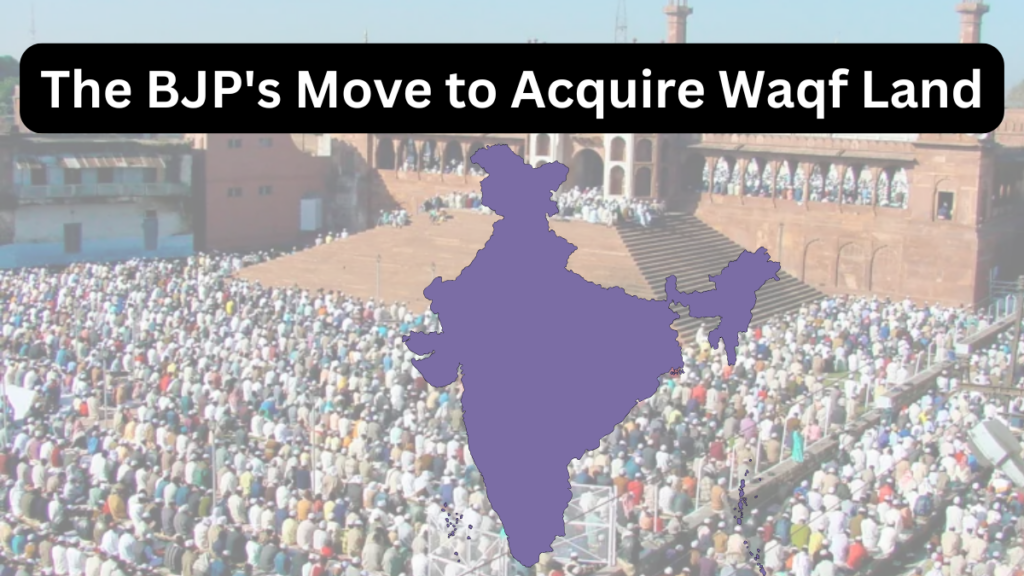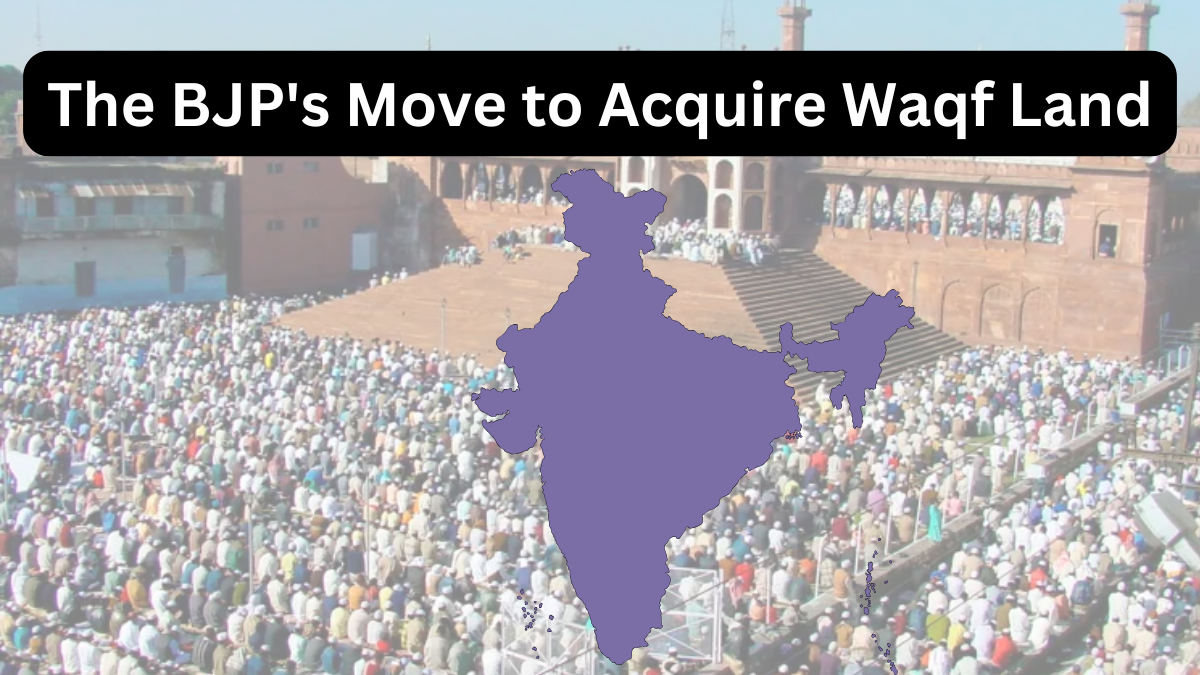The recent actions of the Bharatiya Janata Party (BJP) government in acquiring waqf land for the expansion of a Hindu temple in Ujjain City have stirred controversy. Experts argue that this reflects a wider pattern of government interference in waqf properties, raising concerns about religious discrimination and the future of Muslim-controlled lands in India.

The Ujjain Land Acquisition
In January this year, authorities in Ujjain, a city in Madhya Pradesh, bulldozed nearly 250 properties, including homes, shops, and even a century-old mosque, to make way for a government project known as the Mahakal Corridor. This initiative surrounds the famous Mahakaleshwar Temple and is part of a $1 billion expansion plan.
What is Waqf Land?
-
Waqf is derived from Arabic, referring to property donated by Muslims for religious or charitable purposes.
-
It includes mosques, schools, orphanages, hospitals, and even vacant plots.
-
These properties are meant to be irrevocable, meaning they cannot be sold or used for any other purpose.
The land in question in Ujjain belonged to the Madhya Pradesh Waqf Board and was meant for Muslim religious purposes. However, the BJP-led government’s plan has ignited fears that it is part of a broader effort to control and convert waqf properties across the nation.
India’s Waqf Assets: A Growing Concern
India, with its large Muslim population of over 200 million, is home to the largest number of waqf assets in the world. These assets, totaling more than 872,000 properties across 405,000 hectares (1 million acres), are estimated to be worth around $14.22 billion.
-
Waqf Boards’ Role: Waqf assets are managed by state-level waqf boards, with some also overseen by the federal government.
-
Largest Urban Landowners: These boards are the largest urban landowners in India, only after the army and railways.
Despite this, the government has been accused of mismanagement and encroachments on waqf lands, with a growing debate about amendments to the Waqf Act that could further consolidate the government’s control.
The BJP’s Proposed Amendments: What’s at Stake?
The Indian Parliament is currently discussing amendments to the Waqf Act, which could drastically change how waqf properties are managed. Proposed changes have raised concerns about further marginalizing the Muslim community and increasing government control.
Key Proposed Changes:
-
Non-Muslims on Waqf Boards: Allowing non-Muslims to serve on waqf boards, which critics argue may dilute their religious significance.
-
Property Registration: The mandatory registration of waqf properties with district administrations could potentially lead to greater state control.
Critics, including opposition parliamentarians, argue that these amendments are part of a systematic attempt to seize waqf lands, which could exacerbate ongoing issues with encroachment and mismanagement.
The Ujjain Case: A Direct Violation?
The controversial demolition of properties in Ujjain has drawn attention to the issue of government interference in waqf lands. Critics allege that the state government violated established laws, with legal documents from 1985 confirming that the Ujjain site was originally a Muslim graveyard, home to a historic mosque.
-
Mismanagement and Encroachment: Government officials have long been accused of allowing or even facilitating encroachments on waqf properties.
-
Legal Challenges: A lawyer challenging the Ujjain land acquisition argued that it violated the Waqf Act, furthering concerns about the lack of accountability.
In addition to the demolition, compensation was paid to those whose properties were destroyed, but questions remain as to why the Waqf Board did not claim that compensation.
Waqf Properties Across Madhya Pradesh: A History of Corruption
The situation in Ujjain is not an isolated incident. Across Madhya Pradesh and other parts of India, waqf lands have long been subject to encroachment, mismanagement, and corruption.
-
Corruption in Waqf Management: Cases of fraudulent sales of waqf land and unauthorized construction by mutawallis (caretakers) are widespread.
-
Governmental Encroachment: Many government buildings, including police stations and offices, have been built on prime waqf land.
Activists and experts argue that this is not just a matter of mismanagement but a deliberate effort to dispossess the Muslim community of valuable land.
Will the Waqf (Amendment) Bill Make Things Worse?
The Waqf (Amendment) Bill, 2024, proposed by the Modi government, seeks to address the issues of mismanagement, but experts fear that it could consolidate power in the hands of the government, further enabling land grabs.
Some argue that the growing value of waqf land—located in prime urban areas—makes it a target for state intervention, with the amendments potentially providing a legal framework to seize it.
FAQs
Q1: What is the Waqf Act and why is it important?
The Waqf Act of 1954 governs the management of waqf properties in India, ensuring that these assets are used for religious and charitable purposes by the Muslim community. It is crucial for the preservation of waqf land and assets.
Q2: Why are waqf properties being encroached upon?
Waqf properties, due to their prime locations in urban areas, are often targeted for illegal occupation by both government and private individuals, sometimes with political backing.
Q3: How will the proposed Waqf Act amendments affect waqf properties?
The proposed amendments could lead to increased government control over waqf assets, including the appointment of non-Muslims to waqf boards and mandatory registration of properties. Critics fear this could lead to further encroachment and mismanagement.
Q4: What can be done to protect waqf land from government interference?
Activists suggest that greater transparency in land records, better management of waqf assets, and legal challenges against unlawful land seizures are necessary steps to protect waqf land.
Conclusion
The ongoing battle over waqf properties in India—especially in Ujjain—highlights the longstanding issues of mismanagement and encroachment. While the BJP government’s acquisition of waqf land for temple expansion may seem isolated, experts warn that it is part of a broader effort to control valuable lands under the guise of development. The proposed amendments to the Waqf Act could make these issues worse, leaving Muslim communities vulnerable to land dispossession.
Click here to learn more
Sachin is a dedicated writer specializing in education, career, and recruitment topics, delivering clear and actionable insights to empower readers.
